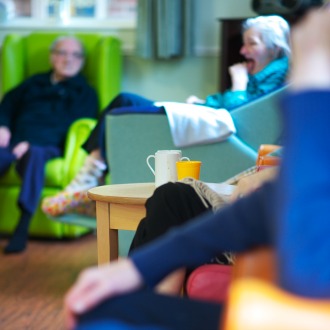The BMA has advised against care homes sending GPs requests to administer over-the-counter medication to elderly patients after complaints that they were becoming ‘increasingly detailed’.
Several LMCs said in recent newsletters that care homes have requested GPs sign a form allowing the administration of ‘homely remedies’ to their elderly residents.
However, local GP leaders said the requests are ‘unacceptable’ as care homes are using GPs ‘as a risk dump’ to hold the liability of prescribing elderly patients OTC medication.
The BMA advised it would be ‘safest’ if OTC medicines were given ‘after the input of a community pharmacist’ rather than a GP.
A number of LMCs, including Kent, Doncaster and Gloucester LMC, said in their newsletters: ‘Some practices are reporting that they are receiving increasingly detailed requests from care homes about “homely remedies”, requesting a GP to sign a form for the administration of these remedies.’
Dr John Allingham, Kent LMC medical secretary, clarified that the care homes, which can use OTC medications, ‘are asking GPs to prescribe or sign policies in order to hold the risk for them’.
He said: ‘This is unacceptable. The GP has no responsibility contractually or from a Good Medical Practice point of view to sign and hold the risk for this.’
He added: ‘Everybody is risk averse and uses the GP as a risk dump to hold responsibility for all sorts of issues.’
Kent GP and West Kent LMC representative Dr Zishan Syed added: ‘What is needed is the acknowledgement of a separate funded service to cover the extremely high healthcare needs of this group without reliance on GPs who are not adequately paid for the amount of work they do for this group.’
The BMA said in guidance released after complaints from practices, that care homes ‘are introducing these policies … and GPs are being asked to complete the paperwork as an alternative to receiving inappropriate prescription requests’.
It said: ‘The main problem, however, is that there is no guarantee that the circumstances that were present when the form was signed still apply when the OTC medicine is to be used, and there is a real danger that these forms will not be updated when patients’ circumstances change.
‘Therefore, it is safest if OTC medicines are available to care home residents after the input of a community pharmacist, where possible from the same pharmacy that supplies the patient’s normal medication.
‘This is an appropriate use of a pharmacists skills, within their competence, and in line with the low value medicines agenda.’
This comes after NHS England announced a pharmacist-led medicine review of 180,000 care home residents, with the aim of reducing overmedication and cutting unnecessary hospital stays.
Care home residents and GP workload
The debate over workload associated with care home residents is not a new one. In fact, LMCs passed a motion in 2016 for GPs to stop looking after care home patients, because they had complex needs GPs could not meet.
However at the same time NHS England is piloting models which would see GP practices taking a greater responsibility for care home residents. Under the Enhanced Health in Care Homes vanguard scheme, practices are paired up with local care homes and GPs do weekly ’rounds’.
The BMA has argued that there are not enough GPs to roll that particular scheme out nationally.
Elsewhere, GPs in Wales are paid £270 per care home residentunder a new enhanced service launched last year. And a CCG in Essex decided a few years ago to set up a dedicated GP service to care home residents to alleviate overworked local practices.
Pulse October survey
Take our July 2025 survey to potentially win £1.000 worth of tokens

Visit Pulse Reference for details on 140 symptoms, including easily searchable symptoms and categories, offering you a free platform to check symptoms and receive potential diagnoses during consultations.












